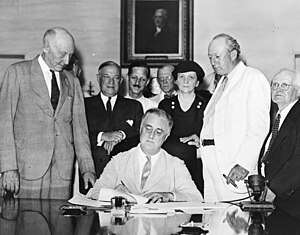The President seems to be on his tear down America tour again. Nothing works because big business, banks and Wall Street are too greedy and corrupt and the middle class has no chance to move up.
He says the idea that big business and the wealthy can raise the tide for all just doesn’t work and never has. If the American system of capitalism never worked how did America become the greatest, wealthiest most powerful nation in the world in just short of 250 years? Sure, there were bumps along the way, as a nation we did some terrible things to many people, everyone didn’t always play fair, there were winners and losers along the way, but every person in America did benefit from the rising tide, every person had (and still has) opportunity and even the least advantaged among us are better off than most of the people in the world.
You can find fault and justified criticism of all the great industrialists and robber barons in our history. Ford, Firestone, Vanderbilt, Carnegie and all the rest took advantage of our system, took advantage of labor, but would we have what we have today or be better off without the likes of these people or what they ultimately accomplished for America under our free market system?
This President delights in finding scapegoats in an ever ongoing effort to pit Americans against one another either to deflect the real cause of economic problems or advance a far left agenda. Over the centuries Jews, Gypsies, American Indians, the Irish, African-Americans and many others have been the victims of scapegoating to further someone’s political agenda. This President focuses on the wealthy (defined in interesting ways), business, Wall Street, banks, insurance companies, and the supreme court as his targets, all the while avoiding a positive, work together, we can succeed message about America. He sees success in tearing down rather than building up.
Mr Obama finds comfort in blaming someone else; his predecessor, Congress (mostly any part of Congress that doesn’t agreee with him) and the 1%. I am looking for an example of a CEO who kept his job very long using the problems he inherited when he took the job as an excuse for not raising earnings, revenue or market share. To be fair Mr Obama doesn’t know how to act like a CEO, he is after all a career politician and nothing more.
Populism sounds great in auditoriums, but the reality is it doesn’t work because promising more and more on the backs of others is a false promise. The lobster enters a trap for a free lunch and ends up being someone else’s not so free dinner. The lobster can’t figure out how to let go and back out the same way he came in.
When Americans hear the ongoing drone that taxing the “wealthy” will raise them up and give them more opportunity, they should ask exactly how that is going to happen. How will Warren Buffett paying an effective tax rate of 35% rather than 17% create jobs, cause US manufacturing to grow and make American goods more competitive on the world market? If you could assure that no American could make more than $250,000 a year, would that make you feel good or would you say, “”Hey, someday I would like to earn more than that.” or “I hope my kids do better than that.”
I send a donation each month to a school that gives a free education to inner city minority children and then gets them scholarships to the best private high schools in the state with most going on to college also on scholarships. If you believe in the Obama rhetoric, then you must also believe that my monthly donation would be put to better use paid as taxes to the federal government. That is the essence of the issue.
No, everyone cannot be left to simply fend for themselves, nothing is right-wing simple. We need some safety nets, some national strategy and some regulation to assure fairness, but we also need individual responsibility and accountability.
To play on the theme that my life is the result of someone else or some system being unfair to me is the biggest trap of all. Little in life is not the result of our own actions or inactions.
President Obama should be ashamed trying to make us a nation of lobsters
Related articles
- Daily briefing – Highlights from Obama’s statement (politico.com)














Recent Comments